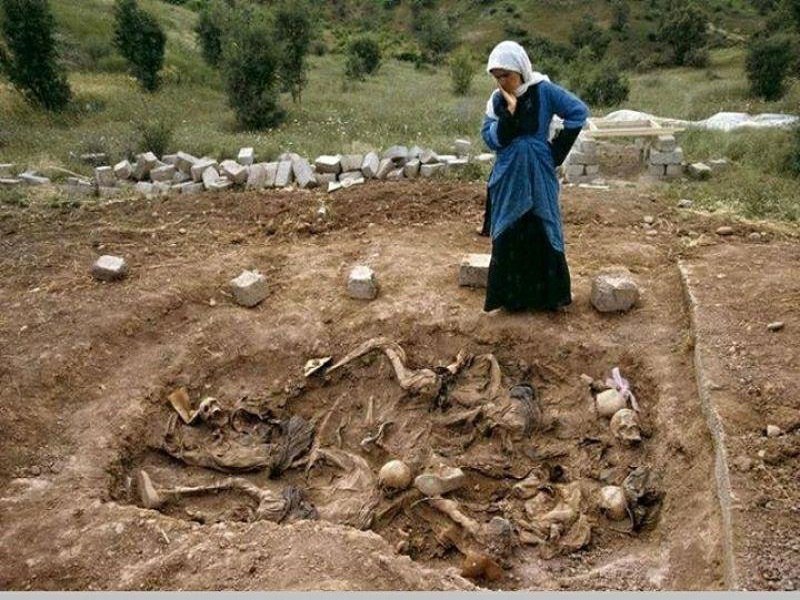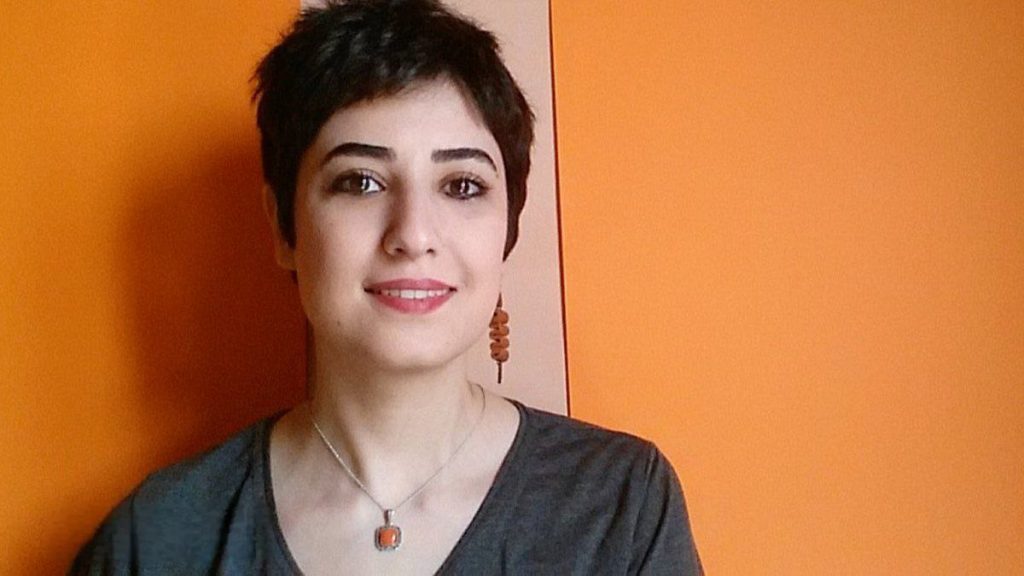
The final days of the last weeks of April coincide with the anniversary of the heinous series of anti-human operations known as the “Anfal” carried out by the Ba’ath regime in southern Kurdistan. A tragedy in which over one hundred and eighty thousand people perished, and after all these years, its psychological, social, and economic repercussions still weigh heavily on this nation. Thirty-six years ago, in such days, while the eight-year Iran-Iraq war was coming to its end, the Ba’ath regime prioritized its military efforts in the Kurdistan fronts and deployed hundreds of thousands of armed forces equipped with tanks, artillery, and various advanced military equipment and aerial support, accompanied by bands of local mercenaries, to invade Kurdistan. The declared objective of this war was to cleanse Kurdistan of the Peshmerga forces, but in practice, it continued an older genocidal policy against the Kurdish nation. Although there were intermittent pauses in the execution of this policy, the Ba’ath regime never abandoned it as a strategy. In 1974, it bombed the city of Qaladze and committed a massacre of unarmed civilians. In the same year, a similar bombing occurred in the town of Halabja, resulting in the slaughter of civilians.
In the years 1976 and 1977, with the aim of creating a security belt as part of the Algiers Agreement, more than four thousand villages were destroyed. Farms, textile factories, and orchards were burned, springs were dried up, and the inhabitants of the villages were forcibly resettled in besieged camps. Later, it went further and destroyed the cities of Qaladze and Sadiq and parts of the city of Rania. In 1979, it forcibly expelled the Kurds from Fil Fil and later massacred many of them.
In 1985, it bombed the refugee camp in southern Kurdistan in the “Ziwah Margor” area in eastern Kurdistan, resulting in the deaths of many unarmed people.
In 1987, it targeted the villages of “Dare Ballysan” in southern Kurdistan with chemical bombing, causing a massive massacre and even prevented the wounded from being treated in hospitals. In the same year, it massacred a neighborhood in the city of Halabja under the pretext of their protests.
In 1988, it forcibly transferred eight thousand people from the Badinan region to the central areas of Iraq and massacred them in the “Jalil” desert, burying them in mass graves. The Anfal operation was the culmination of the implementation of this inhuman policy.
“Anfal” is a name derived from a narration in the Qur’an meaning “spoils of war.” Choosing this name for these operations was to incite local mercenaries to commit crimes, looting, and plundering. In these operations, local mercenaries serving the regime were allowed to loot the properties of the people in villages, towns, and settlements that had been forced to evacuate.
During the course of the Anfal operations, thousands of people, including women, men, children, the elderly, and the youth, were forcibly displaced from their homeland and living areas, without even being allowed to take more than the clothes on their backs. These people were transported in buses in groups of thousands to the “Awrah Salamaneh” in the central part of Iraq and mercilessly slaughtered there. Years later, the survivors of this tragedy revealed horrifying stories of mass atrocities, and some details of this genocidal massacre were disclosed. Although an accurate death toll from this disaster has not been obtained, rough estimates indicate the killing of one hundred and eighty thousand people who were buried in mass graves.
The tragedy of Anfal, with all its horrific dimensions, unfolded before the eyes of the world’s major governments, and foremost among them, the United States, without any deterrent reaction from them. The global media, under the control of these governments, remained silent in the face of these heinous crimes. Now that public awareness has been raised about the details of this genocide, the international official bodies have still not recognized these horrific crimes against the people of Kurdistan as a genocide on a global scale. This silence and indifference are another injustice inflicted on the people of Kurdistan. Today, thirty-six years after the massacre of Anfal and the victims of this great tragedy, we remember that the dictatorship of the Ba’ath regime is no longer in power.
Saddam and several of his accomplice criminals were hanged. Although these criminals are no longer in power, unfortunately, the people of Kurdistan were deprived of the right to bring these criminals to trial in a public court and announce their punishment. Saddam and some of those criminals who created the horrors of Anfal and Halabja have passed away, but the pain and suffering of the afflicted people who endured these bitter events still remain. Many local Kurdish mercenaries employed by the Ba’ath regime in this collective massacre not only escaped punishment but also managed to preserve all the wealth they had obtained from looting the property of the Anfal victims. After 37 years since those difficult days, tens of thousands of Anfal-displaced families are still lamenting in poverty, bereavement, and grief over the loss of their loved ones. On the anniversary of this great humanitarian tragedy, we express our disgust and hatred towards its planners and perpetrators, and salute the memory of more than one hundred and eighty thousand innocent human beings who lost their lives in this genocide.

